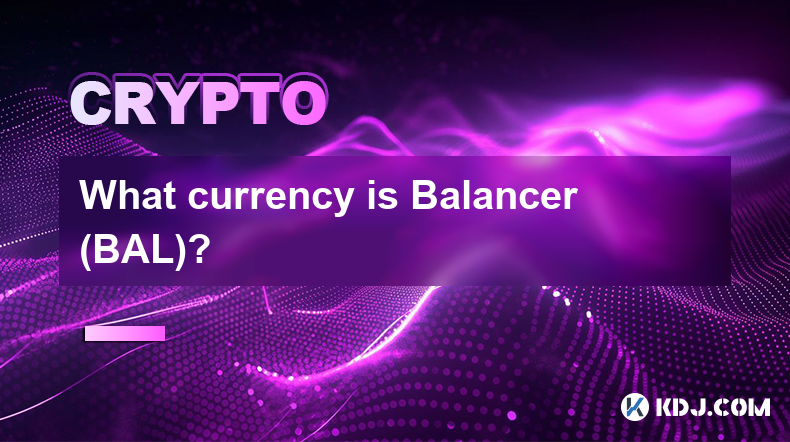-
 Bitcoin
Bitcoin $94,547.8466
0.21% -
 Ethereum
Ethereum $1,806.7594
0.31% -
 Tether USDt
Tether USDt $0.9999
-0.01% -
 XRP
XRP $2.1234
-1.68% -
 BNB
BNB $599.0549
1.55% -
 Solana
Solana $144.9772
-0.70% -
 USDC
USDC $0.9999
0.00% -
 Dogecoin
Dogecoin $0.1701
-0.92% -
 TRON
TRON $0.2476
-0.69% -
 Cardano
Cardano $0.6632
-2.18% -
 Sui
Sui $3.3845
2.33% -
 Chainlink
Chainlink $13.6176
-2.44% -
 Avalanche
Avalanche $19.8101
-1.14% -
 Stellar
Stellar $0.2591
-3.29% -
 UNUS SED LEO
UNUS SED LEO $8.6607
-4.53% -
 Toncoin
Toncoin $3.0282
0.21% -
 Shiba Inu
Shiba Inu $0.0...01272
-1.38% -
 Hedera
Hedera $0.1745
-0.92% -
 Bitcoin Cash
Bitcoin Cash $358.3442
-0.02% -
 Hyperliquid
Hyperliquid $20.2508
-1.00% -
 Litecoin
Litecoin $83.1410
-4.05% -
 Polkadot
Polkadot $3.9239
-1.68% -
 Dai
Dai $1.0000
0.00% -
 Monero
Monero $281.8205
3.19% -
 Bitget Token
Bitget Token $4.2974
0.06% -
 Ethena USDe
Ethena USDe $1.0004
0.00% -
 Pi
Pi $0.5885
-0.17% -
 Pepe
Pepe $0.0...07957
-3.94% -
 Bittensor
Bittensor $376.0863
6.98% -
 Uniswap
Uniswap $4.9441
-2.18%
What currency is Balancer (BAL)?
Balancer's native currency, BAL, empowers holders with governance, rewards for providing liquidity, and utility for platform fees.
Dec 08, 2024 at 04:50 am

What Currency is Balancer (BAL)?
Balancer (BAL) is a blockchain-based decentralized exchange (DEX) and automated market maker (AMM) that operates on the Ethereum network. The Balancer protocol allows users to trade cryptocurrencies with minimal slippage and price impact by using a unique liquidity provision model known as "liquidity pools."
Each pool is composed of two or more cryptocurrencies, and liquidity providers (LPs) can deposit their assets into these pools to earn fees from trading activities. The Balancer protocol automatically adjusts the weightings of the assets in each pool to maintain a balanced state, ensuring that there is always enough liquidity available for traders.
The native currency of the Balancer protocol is BAL, which serves several important functions within the ecosystem:
- Governance: BAL holders can participate in the governance of the Balancer protocol by voting on proposals that affect the platform's development.
- Fees: A portion of the trading fees generated by the Balancer protocol is distributed to BAL holders as rewards for providing liquidity.
- Utility: BAL can be used to pay for transaction fees on the Balancer platform, including pool creation and liquidity provision.
In-depth Explanation:
1. Balancer as a Decentralized Exchange (DEX)
Unlike centralized exchanges, which are typically operated by a single entity, decentralized exchanges (DEXs) like Balancer do not have any central authority. Instead, DEXs are powered by smart contracts that automatically execute trades based on pre-defined rules.
One of the key advantages of DEXs is that they give users full control over their assets. Unlike centralized exchanges, where users must deposit their funds into the exchange's custody, DEXs allow users to trade directly from their non-custodial wallets. This eliminates the risk of exchange hacks or freezing of funds.
Balancer's unique liquidity provision model, which utilizes liquidity pools, helps to reduce slippage and price impact for traders. When a trade is executed on a Balancer pool, the protocol automatically adjusts the weightings of the assets in the pool to maintain a balanced state. This ensures that there is always enough liquidity available for traders, even for large trades.
2. Liquidity Provision and Rewards
Liquidity providers (LPs) play a crucial role in the Balancer ecosystem by depositing their assets into liquidity pools. In return for providing liquidity, LPs earn a portion of the trading fees generated by the pool.
The Balancer protocol uses a unique fee structure that rewards LPs for providing balanced liquidity. The protocol calculates a "pool fee" for each pool, which is a percentage of the trading volume that is distributed to LPs. The pool fee is divided among LPs based on their proportional share of the pool's liquidity.
In addition to earning trading fees, LPs can also earn BAL rewards. A portion of the BAL tokens emitted by the Balancer protocol is distributed to LPs as an incentive for providing liquidity.
3. Governance and BAL Token Holder Benefits
BAL holders play an important role in the governance of the Balancer protocol. BAL token holders can participate in the Balancer DAO (Decentralized Autonomous Organization) by voting on proposals that affect the platform's development.
BAL token holders can also benefit from the network's liquidity mining program. Liquidity providers who stake their BAL tokens in the Balancer Liquidity Mining Pool earn additional BAL rewards.
4. Future of Balancer and the BAL Token
The Balancer protocol is a rapidly evolving platform, and the BAL token is expected to play an increasingly important role in the ecosystem. As the DeFi space continues to grow, Balancer is well-positioned to capture a significant share of the market for decentralized trading and liquidity provision.
The future outlook for the BAL token is positive, as the demand for decentralized trading services is expected to increase. The token's value is likely to be influenced by the growth of the Balancer protocol, the adoption of DeFi, and the overall market conditions in the cryptocurrency space.
Disclaimer:info@kdj.com
The information provided is not trading advice. kdj.com does not assume any responsibility for any investments made based on the information provided in this article. Cryptocurrencies are highly volatile and it is highly recommended that you invest with caution after thorough research!
If you believe that the content used on this website infringes your copyright, please contact us immediately (info@kdj.com) and we will delete it promptly.
- Bitcoin (BTC) Shows Flashes of Independence from Equities in April, Renewing Hopes It's Evolving into a True Macro Hedge
- 2025-05-06 13:15:12
- XRP Price Holds Strong at $2.13 as the Broader Market Witnesses Increased Volatility This Week
- 2025-05-06 13:15:12
- Crypto Market Update – Where Are We Heading in May 2025?
- 2025-05-06 13:10:12
- Saylor Drops ‘Orange Dot’ Hint on X
- 2025-05-06 13:10:12
- Bitcoin (BTC) Exchange Reserve on Binance Has Crashed Recently, a Bullish Sign?
- 2025-05-06 13:05:12
- BlockDAG (UNSD) Price Targets $400, PI Price Forecast Climbs, BlockDAG's Live Podcasts Reveal Real Progress
- 2025-05-06 13:05:12
Related knowledge

BSV transaction fees suddenly increased? How to adjust the handling fee to save costs?
May 02,2025 at 06:42am
Understanding BSV Transaction FeesBSV (Bitcoin SV) aims to fulfill the original vision of Bitcoin as a peer-to-peer electronic cash system. One of the key elements in this system is the transaction fee, which compensates miners for including transactions in the blockchain. Recently, users have noticed a sudden increase in BSV transaction fees, which can...

Does BSV transaction require real-name authentication? Is anonymous trading feasible?
May 03,2025 at 03:14pm
The question of whether BSV (Bitcoin SV) transactions require real-name authentication and whether anonymous trading is feasible is a complex one, deeply intertwined with the broader dynamics of cryptocurrency regulations and blockchain technology. Let's delve into these aspects to provide a comprehensive understanding. Understanding BSV and Its Transac...

How to solve the high slippage of BSV transactions? How to choose between limit and market orders?
May 02,2025 at 09:01pm
High slippage can be a significant concern for traders dealing with Bitcoin SV (BSV) transactions. Slippage refers to the difference between the expected price of a trade and the price at which the trade is actually executed. This can occur in fast-moving markets or when there is low liquidity. To address this issue, understanding the mechanics of slipp...

What if BSV transactions are frozen? How to contact customer service to unblock the account?
May 05,2025 at 05:01am
When dealing with Bitcoin SV (BSV) transactions, encountering issues such as frozen transactions can be a stressful experience. This article will guide you through the process of understanding why BSV transactions might be frozen and how to contact customer service to unblock your account. We will cover the reasons behind frozen transactions, steps to t...

What if BSV node synchronization is slow? How to optimize local wallet performance?
May 03,2025 at 04:35pm
When dealing with BSV (Bitcoin SV) node synchronization and optimizing local wallet performance, it's crucial to understand the underlying issues and implement effective solutions. Slow synchronization and poor wallet performance can significantly hinder your experience with the BSV network. This article will delve into the reasons behind slow BSV node ...

How to check BSV transaction records? How to use the blockchain browser?
May 03,2025 at 06:50am
Checking BSV (Bitcoin SV) transaction records and using a blockchain browser are essential skills for anyone involved in the cryptocurrency space. These tools allow you to verify transactions, check wallet balances, and understand the flow of funds on the blockchain. This article will guide you through the process of checking BSV transaction records and...

BSV transaction fees suddenly increased? How to adjust the handling fee to save costs?
May 02,2025 at 06:42am
Understanding BSV Transaction FeesBSV (Bitcoin SV) aims to fulfill the original vision of Bitcoin as a peer-to-peer electronic cash system. One of the key elements in this system is the transaction fee, which compensates miners for including transactions in the blockchain. Recently, users have noticed a sudden increase in BSV transaction fees, which can...

Does BSV transaction require real-name authentication? Is anonymous trading feasible?
May 03,2025 at 03:14pm
The question of whether BSV (Bitcoin SV) transactions require real-name authentication and whether anonymous trading is feasible is a complex one, deeply intertwined with the broader dynamics of cryptocurrency regulations and blockchain technology. Let's delve into these aspects to provide a comprehensive understanding. Understanding BSV and Its Transac...

How to solve the high slippage of BSV transactions? How to choose between limit and market orders?
May 02,2025 at 09:01pm
High slippage can be a significant concern for traders dealing with Bitcoin SV (BSV) transactions. Slippage refers to the difference between the expected price of a trade and the price at which the trade is actually executed. This can occur in fast-moving markets or when there is low liquidity. To address this issue, understanding the mechanics of slipp...

What if BSV transactions are frozen? How to contact customer service to unblock the account?
May 05,2025 at 05:01am
When dealing with Bitcoin SV (BSV) transactions, encountering issues such as frozen transactions can be a stressful experience. This article will guide you through the process of understanding why BSV transactions might be frozen and how to contact customer service to unblock your account. We will cover the reasons behind frozen transactions, steps to t...

What if BSV node synchronization is slow? How to optimize local wallet performance?
May 03,2025 at 04:35pm
When dealing with BSV (Bitcoin SV) node synchronization and optimizing local wallet performance, it's crucial to understand the underlying issues and implement effective solutions. Slow synchronization and poor wallet performance can significantly hinder your experience with the BSV network. This article will delve into the reasons behind slow BSV node ...

How to check BSV transaction records? How to use the blockchain browser?
May 03,2025 at 06:50am
Checking BSV (Bitcoin SV) transaction records and using a blockchain browser are essential skills for anyone involved in the cryptocurrency space. These tools allow you to verify transactions, check wallet balances, and understand the flow of funds on the blockchain. This article will guide you through the process of checking BSV transaction records and...
See all articles




















































































